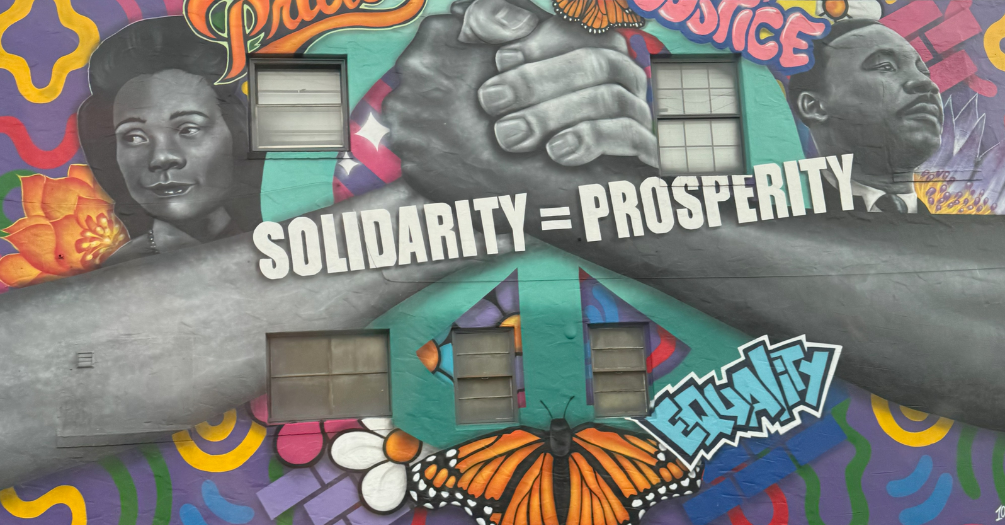San Antonio: Community, Resilience, and Hope

Sarah Olson
1st Year Global Health Epidemiology Student
As I boarded our flight from Detroit to San Antonio early Sunday morning, I had no idea what to expect. The project that we had been preparing for all semester was finally here; what would it be like? Would the community want us there? What kinds of experiences were in store for us? How could we, as students who were aiming to gain information on community needs, best work for the community in the little time that we would be in Texas? There were so many unknowns and so little time that we would have with this community, but as the week went on, I felt myself being able to fit into the groove of our work and this newfound community.
I made sure to recall and remember the main takeaways from the course; be flexible, expect the unexpected, and work for the community first. The week started out with distributing and collecting our surveys on community health and resources availability in San Antonio. While my group initially was only going to be collecting data at the Ella Austin Community Center, a recommendation was given to us that would end up not only increasing the amount of data collected, but would also work to make our survey population more diverse and representative of different parts of the community. So, taking the recommendation to travel to another location, two of us jumped into a car and headed to Early Head Start by Ella Austin to collect surveys from childcare workers. Before this week had begun, did I think that I would be whispering community health survey instructions in a room full of napping three-year-olds? Not exactly, but this was what being flexible and expecting the unexpected was about, and because of this, we were able to expand the horizons of our data collection that would be more representative of all of the populations that made up the east side of Bexar County.
We moved on to focus groups, having initially only planning to do one, but we later on made a quick pivot to have a second focus group for the east side team. I think that the focus groups were a highlight of this experience for many; the environment gave community members a voice.
People from all different backgrounds- those who had lived in San Antonio their whole lives, those who had moved there more recently, those who lived in the west side but worked in the east side, young adults, elders, teachers, pastors, students, construction workers, retired medical professionals, new parents, and much more- were able to come together to talk about their beloved community. They spoke of the barriers to healthcare and frustrations with infrastructure, but most importantly, they spoke of hope. The strength of community and who they have and will continue to fight for one another in a world it is sometimes difficult to see the positives. They spoke of love, of loss, of friendship, of fighting for one another.
I think as public health students and professionals, we sometimes get caught up in the downfalls of health; on what is lacking and needs to be fixed, or on the work that still needs to be done. While this is extremely important to recognize (as they say, life is not a bed of roses), it only captures one side of the picture. In times of trial rise the power of community, of people helping people and uplifting each other. This, arguably, is equally as important as the downfalls in life.
After a week of highs and lows and many lessons learned, I once again boarded the plane, but this time with a changed perspective. Over all, this experience made me realize and appreciate the power of community, a term that I now feel like I better understand. Community is the glue that holds us together. Community is our loved ones that we have known our entire lives, but is also the kindness in the strangers that help us when we need it the most. Community is a person, a thought, a feeling, and whatever you need it to be. Community is in all of us.
"With rare exceptions, all of your most important achievements on this planet will come from working with others—or, in a word, partnership." - Paul Farmer, Partners in Health
